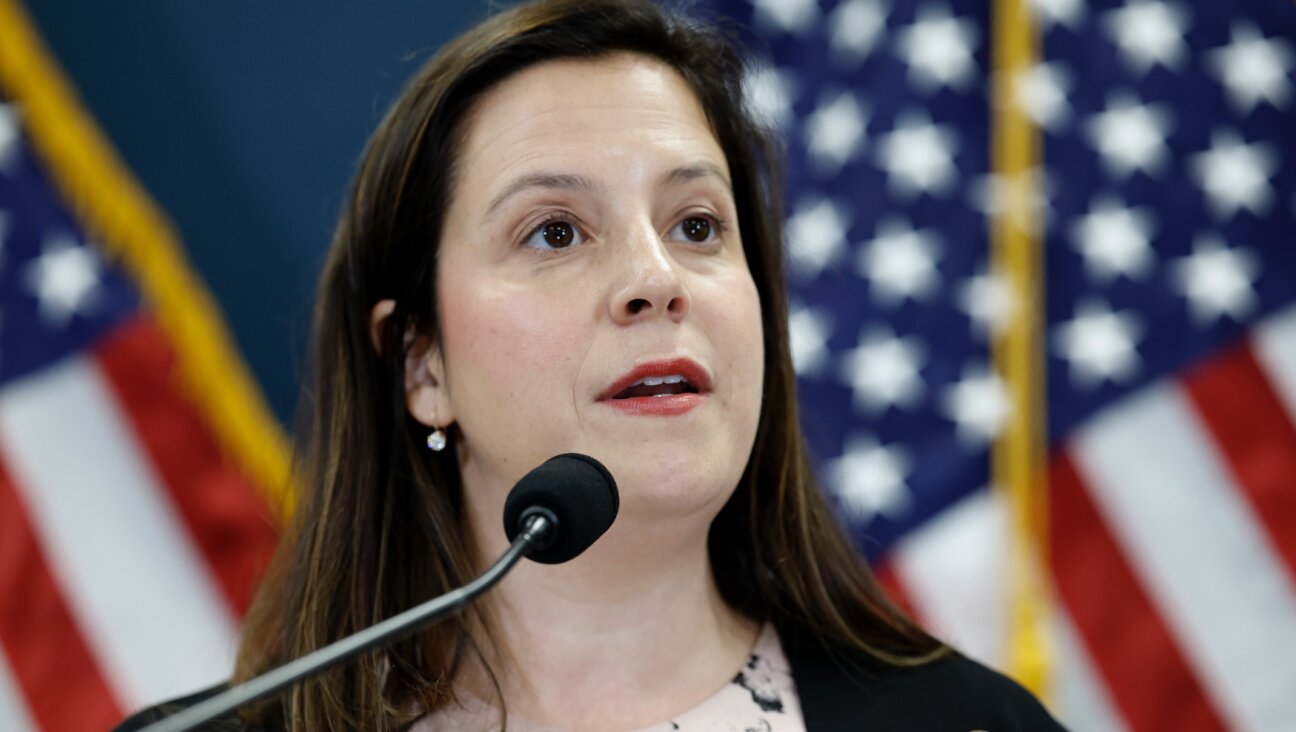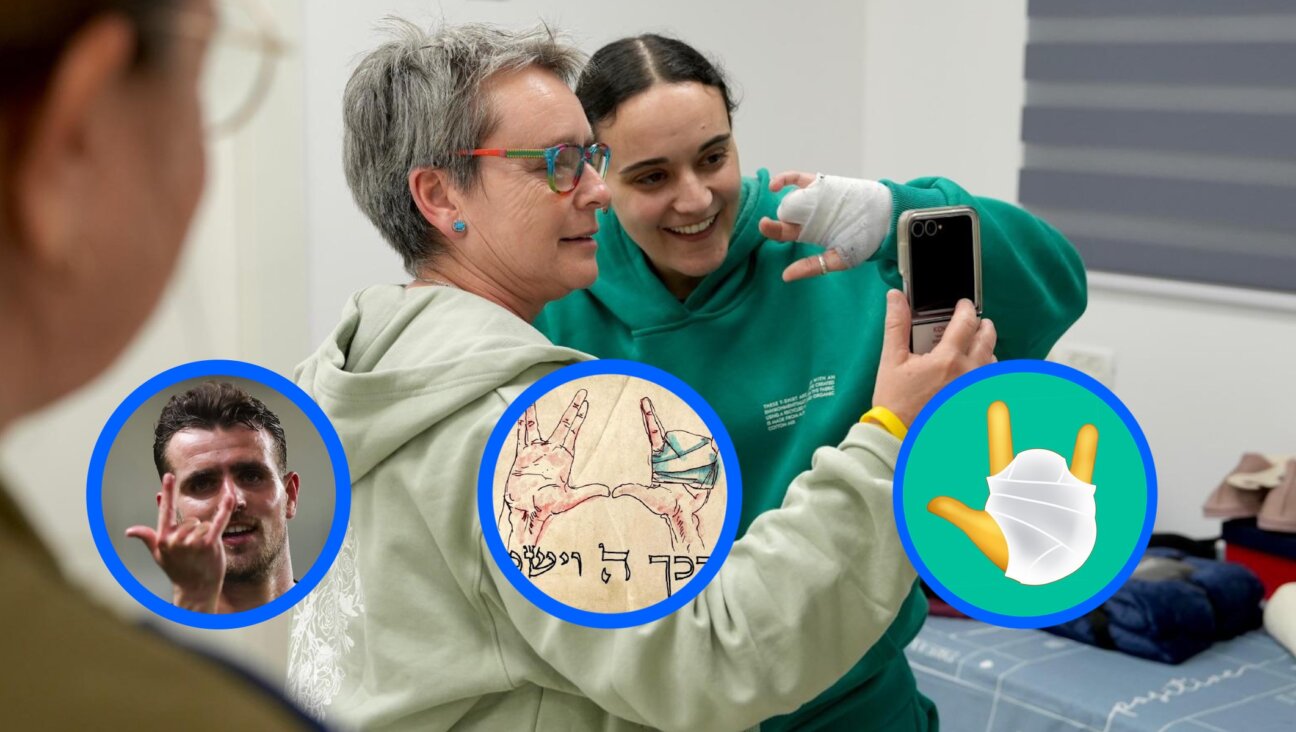Palestinians Accuse Israel of Breaking Truce With Attack That Kills Girl

Image by getty images
Palestinians accused Israel of breaking its own ceasefire on Monday by launching a bomb attack on a refugee camp in Gaza City that killed an eight-year-old girl and wounded 29 other people.
Gaza Health Ministry spokesman Ashraf Al-Qidra said the strike on a house in Shati camp took place after the truce was scheduled to start on Monday morning.
An Israeli military spokeswoman said she was checking the report.
Israel announced a seven-hour ceasefire to facilitate the entry of humanitarian aid and allow some of the hundreds of thousands of Palestinians displaced by an almost four-week-old war to go home.
The announcement met with suspicion from Gaza’s dominant Hamas Islamists and followed unusually strong censure from Washington at the apparent Israeli shelling on Sunday of a U.N.-run shelter that killed 10 people.
An Israeli defense official said the ceasefire, from 10 a.m. to 5 p.m. (0700 to 1400 GMT), would apply everywhere but areas of the southern town of Rafah where ground forces have intensified assaults after three soldiers died in a Hamas ambush there on Friday.
“If the truce is breached, the military will return fire during the declared duration of the truce,” the official said. The official said east Rafah was the only urban area in which troops and tanks were still present, having been withdrawn or redeployed near Gaza’s border with Israel over the weekend.
Mark Regev, spokesman for Israeli Prime Minister Benjamin Netanyahu, said Israel’s goal was “to assist with the humanitarian relief” of the people of Gaza.
“Unfortunately, I understand that Hamas has publicly rejected the ceasefire, and that would be the eighth ceasefire that Hamas has rejected,” he said on CNN.
Hamas, whose envoys are in Egypt for truce negotiations that Israel has shunned in anger at Friday’s ambush in Rafah, saw a possible ruse in the humanitarian truce announcement.
Hams said attacking the house after the Israeli ceasefire began was evidence that the truce was for media consumption only. “We urge our people to continue to be cautious,” said the group’s spokesman, Sami Abu Zuhri.
Israel is winding down its offensive in the absence of a mediated disengagement deal with Hamas. It says the army is close to completing the main objective of the ground assault – destruction of cross-border infiltration tunnels from Gaza – and is prepared to respond to Palestinian attacks.
The Israeli chief military spokesman said forces were deployed along both sides of the Gaza border.
“Redeployment lets us work on the tunnels, provides defense (of Israeli communities nearby) and lets the forces set up for further activity. There is no ending here, perhaps an interim phase,” Brigadier-General Motti Almoz told Army Radio.
In a predawn air strike Israel killed Danyal Mansour, a senior commander of Islamic Jihad, a Palestinian group fighting alongside Hamas.
Israel launched its offensive on July 8 following a surge in Hamas rocket salvoes. It escalated from air and naval barrages to overland incursions centered on Gaza’s tunnel-riddled eastern frontier but also pushing into densely populated towns.
Gaza officials say 1,797 Palestinians, most of them civilians, have been killed and more than a quarter of the impoverished enclave’s 1.8 million residents displaced. As many as 3,000 Palestinian homes have been destroyed or damaged.
“DISGRACEFUL SHELLING”
Many of those evacuees have taken shelter in U.N.-run facilities, including a Rafah school where 10 people were killed on Sunday in what Gaza officials said was an Israeli air strike.
Israel said it was investigating the incident and that it may have been linked to an attempt by the military to kill Islamic Jihad gunmen, as they drove nearby.
International outcry crested against the Israelis. U.N. Secretary-General Ban Ki-moon described the attack as a “moral outrage and a criminal act” and called for those responsible for the “gross violation of international humanitarian law” to be held accountable.
The United States said it was “appalled” by the “disgraceful shelling” and urged its Middle East ally to do more to prevent harm to civilians. Washington also called for an investigation into other, similar attacks on U.N. schools in Gaza.
Israel says it makes every effort to avoid non-combatant casualties and that Hamas invites these by launching rockets from, and entrenching gunmen inside congested civilian areas.
Prime Minister Benjamin Netanyahu’s office said Hamas had turned U.N. facilities into “terrorist hot spots”. The main U.N. agency in Gaza, UNRWA, says it has found rockets in three of its schools.
Israel has lost 64 soldiers in combat and three civilians to Palestinian cross-border shelling that has emptied many of its southern villages. Iron Dome interceptors, air raid sirens and public shelters have helped stem Israeli casualties.
Egyptian truce mediation, supported by the United States and the United Nations and also involving Qatar, Turkey and Western-backed Palestinian President Mahmoud Abbas, has been complicated by the dramatically divergent terms set by Israel and Hamas.
Israel has said Gaza must be stripped of tunnels and rocket stocks. Hamas rules this out, and demands an easing of the crippling Gaza blockade enforced by both Israel and Egypt, which consider the Palestinian Islamists a security threat.
In Cairo on Sunday, Palestinian delegates said they also wanted Israel to quit Gaza, facilitate reconstruction of the battered territory and release Palestinian prisoners.
The Israelis, however, have shown little interest in resuming negotiations after blaming Hamas for violating Friday’s truce with the Rafah ambush – an accusation echoed by the United States and the United Nations, though disputed by Hamas.
A message from our Publisher & CEO Rachel Fishman Feddersen

I hope you appreciated this article. Before you go, I’d like to ask you to please support the Forward’s award-winning, nonprofit journalism so that we can be prepared for whatever news 2025 brings.
At a time when other newsrooms are closing or cutting back, the Forward has removed its paywall and invested additional resources to report on the ground from Israel and around the U.S. on the impact of the war, rising antisemitism and polarized discourse.
Readers like you make it all possible. Support our work by becoming a Forward Member and connect with our journalism and your community.
— Rachel Fishman Feddersen, Publisher and CEO





















